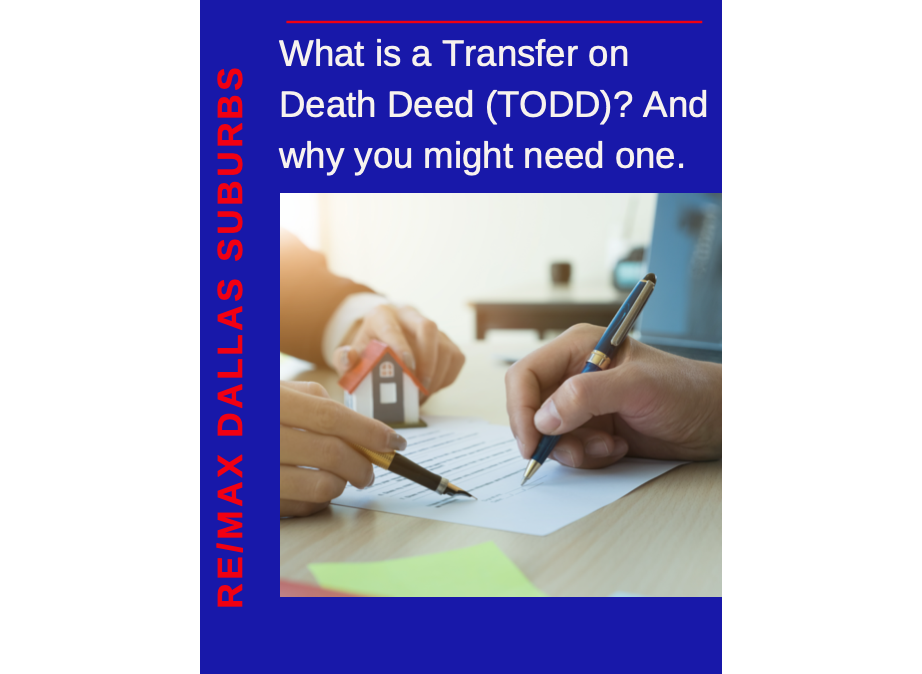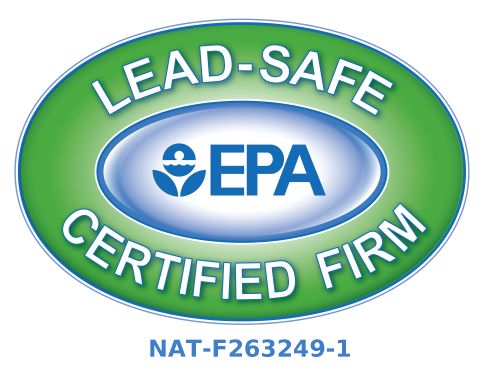
BEHIND THE SCENE

A Transfer on Death Deed (TODD), sometimes called a beneficiary deed, is a special type of deed that can be used to transfer ownership of real estate outside probate in a number of states, including Texas. According to texaslawhelp.org, a properly recorded Transfer on Death Deed is a simple way to transfer real estate to someone else after you die. No probate needed. As you can imagine there are a number of instances where a TODD might be beneficial.
If you want to pass property to a beneficiary at your death without probate, assets can be place in a living trust. However, in some cases it may be simpler and less expensive to transfer the property by a Transfer on Death Deed (TODD).
By signing a Transfer on Death Deed now, you can move your property from your sole name into the name of your beneficiary. Note the deed is not valid because it does not take effect until you die. During your lifetime, you own the property. Which means, you retain the right to mortgage or sell said property. The beneficiary has no legal rights to the property until your death.
You can name more than one beneficiary if you choose. And, in the future, if you decide to change the beneficiary, you can revoke the deed and create and record a new deed to supersede the old one, transferring the property to your new beneficiary.
If you are a joint owner of a property, you can transfer your interest to another joint owner (example: your spouse), or to non-owners (example: grandchildren) by naming them as TODD beneficiaries.
After you die, the beneficiary/beneficiaries should go to deed records and fill out an Affidavit of Death to obtain clear title.
On the texaslawhelp.com website under “Transfer on Death Deed (TODD): Information and Answers” it states. “Whether you have a will or not, your property will still have to go through probate court system. A Transfer of Death Deed conveys property outside of probate. Not having to go through probate allows you to avoid incurring court costs and administrative costs to deed the property to your beneficiary. Under current law, it also excludes the real property from Medicaid estate recovery.”
And according to thebalance.com “Estate Planning” because you’re not technically giving the property away during your lifetime, the deed will not incur a gift tax. However, the property will contribute to the value of your estate for estate tax purposes.

As we stated above, in many situations a TODD might be a good idea for transferring property as it will avoid the time and costs associated with probate. But to be certain if a Transfer on Death Deed is right for you and your heirs, we suggest you consult an estate planning attorney.
Hi, I’m Suzanne Athey, owner of Team Athey & Remarkable Property Management. I hope you found the above information helpful. If you’d like to talk further or learn more about real estate in general, call me at 469-916-1222 or email me at suzanne@teamathey.com. I’d love to visit with you.










